Syrian Beverages: Basic Overview
Common Ingredients
Common Preparing Methods
Drinking Etiquette
Influence and Fusion
Syrian Beverages: Origin and Region
Cuisine
Culinary Region
Country’s Region
Classifications of Syrian Beverages
-
Alcoholic Beverages
Syrian alcoholic beverages, deeply rooted in cultural and historical contexts, include various types of Arak, beer, and wine.
These beverages are commonly paired with mezze, showcasing its role in social gatherings and celebrations.
-
Non-alcoholic Beverages
Non-alcoholic beverages in Syrian cuisine are a blend of refreshing, aromatic, and sometimes medicinal drinks. Popular options include tea, coffee, and ayran.
These non-alcoholic options reflect the use of locally sourced ingredients like dried fruits, rose water, and spices.
Syrian beverages reflect the country’s rich cultural heritage and diverse influences from Arab, Ottoman, and Mediterranean traditions. They feature a range of flavors, from sweet and sour to bitter. Traditional preparation methods include boiling, steeping, and blending.
Syrian cuisine features both alcoholic and non-alcoholic drinks, with a strong emphasis on non-alcoholic options. Popular non-alcoholic beverages include tea, coffee, ayran and fruit-based drinks like pomegranate juice and mint lemonade.
Although less prevalent due to cultural and religious practices, alcoholic beverages do exist in Syria. Arak, an anise-flavored spirit, is the most notable and is often enjoyed during social gatherings.
Syrian wine, primarily produced in Christian areas, varies in quality and sweetness, while local beers like Al-Shark and Barada are also enjoyed.
This guide highlights the top drinks in Syria, including both alcoholic and non-alcoholic options. Keep reading until the end to find out how these beverages match perfectly with various dishes.
Begin your journey now!
18 Best Syrian Beverages
Here are 18 of Syria’s most popular drinks, featuring national, traditional, street beverages and other options. Use the filter functions to easily find your favorites.
Shay
- Non-Alcoholic
- National
- Traditional
Shay, or Syrian tea, is a national beverage in Syria, often enjoyed in social gatherings. Shay offers a strong and slightly astringent flavor made with black tea leaves, typically enhanced with fresh mint or cardamom for a refreshing, aromatic twist.
This tea is consumed year-round, fitting seamlessly into any meal, whether it’s breakfast, lunch, or dinner. During Ramadan, Shay holds special significance as it is used to break the fast and foster a sense of community.
Notable variations of Shay include mint tea (Shay bi na’na’), sage tea (Shay bi maramiya), and cardamom tea (Shay bil hale).
Qahwa
- Non-Alcoholic
- National
- Traditional
Qahwa, or Syrian coffee, is a traditional beverage known for its strong, aromatic profile. It features a rich, bold taste with earthy, slightly bitter undertones, often enhanced by cardamom for a spicy hint.
Enjoyed year-round, Qahwa is favored after meals and social gatherings, especially during celebrations like Eid. Qahwa variations consist of Arabic coffee (Qahwa Arabiya), cardamom coffee (Qahwa Bi Hale), and bitter coffee (Qahwa Murrah).
Ayran
- Non-Alcoholic
- Traditional
Ayran, or doogh, is a traditional yogurt-based beverage enjoyed in Syria and the Middle East. This refreshing drink combines yogurt, water, and salt, often enhanced with mint or other herbs.
Its tangy, slightly salty taste and creamy, smooth texture make it invigorating. Other options available are cucumbers for a crunchy texture or dried rose petals for a subtle floral note.
Ayran is popular year-round, especially during hot summer, and is typically served with lunch and dinner. Widely consumed in Turkey, Iran, and the Levant, Ayran is associated with casual dining and street food culture.
Jallab
- Non-Alcoholic
- Traditional
Jallab is a common Syrian beverage known for its sweet and smoky flavor. Made from grape molasses, rose water, and a hint of incense, it offers a unique and aromatic taste. Smooth in texture, jallab is typically served over ice and garnished with pine nuts and raisins.
Popular during summer, jallab is enjoyed across the Middle East, including Lebanon and Jordan. It is especially significant during Ramadan, often served to break the fast at Iftar.
Tamar Hindi
- Non-Alcoholic
- Traditional
Tamar hindi, or tamr hendi, is a traditional Syrian drink made from tamarind. It boasts a tart and tangy flavor with a hint of sweetness, served cold over ice. Sometimes enhanced with rose water, it gains a subtle floral note, adding to its refreshing and invigorating profile.
This beverage is especially popular during summer and Ramadan, when it is enjoyed to break the fast. Street vendors in traditional attire often sell Tamar Hindi in busy marketplaces. It is a favorite across Syria and the Middle East, including Egypt and Jordan.
Fresh Orange Juice
- Non-Alcoholic
- Street Beverages
Fresh orange juice, a staple in Syrian cuisine, is loved for its bright and refreshing flavor. Made by squeezing fresh oranges, it delivers a sweet and tangy taste with a smooth texture, sometimes enhanced by a bit of pulp.
Enjoyed year-round, this drink is commonly served at breakfast but remains popular throughout the day. Common variations in Syria include plain orange juice, orange juice with mint, and with a dash of lemon for added zest.
Arak
- Alcoholic
- National
- Traditional
Arak, or araq, is a national alcoholic beverage in Syrian cuisine and other Levantine countries. Made from grapes and aniseed, it has a distinct licorice flavor with a strong, herbal taste and sharp alcoholic finish.
With an alcohol content of 40-63%, Arak turns milky white when mixed with water due to the reaction with anise oil. It is enjoyed year-round, particularly at dinner parties and festive occasions.
Its popularity extends across the Middle East, including Lebanon, Jordan, and Israel, and it has recently gained traction in Western countries.
Qamar al-Din
- Non-Alcoholic
- Traditional
Qamar al-din, or kamaruddin, is a traditional Syrian beverage made from apricot paste. Known for its sweet and tangy flavor, it has a thick, smooth, refreshing, and satisfying texture.
The apricot paste is typically sun-dried, reconstituted with water, sweetened, and sometimes flavored with rose or orange blossom water.
This drink is especially popular during Ramadan, served to break the fast at Iftar. Though enjoyed year-round, Qamar al-Din holds special significance during the holy month and is popular in Lebanon and Egypt.
Sharbat Rumman
- Non-Alcoholic
- Traditional
Sharbat rumman, or Syrian pomegranate juice, combines the tartness of pomegranate with a hint of sweetness, often enhanced by orange blossom water or lemon juice.
This drink is enjoyed year-round, especially in summer, and is a favorite at festive occasions and family gatherings. Popular in Syria and neighboring countries like Lebanon and Palestine, sharbat rumman is commonly served at Iftar to break the fast.
Sharbat al-Toot
- Non-Alcoholic
- Traditional
Sharbat al-toot, or mulberry juice, is a traditional Syrian drink known for its rich, sweet, and slightly tart flavor. Made from fresh mulberries, it is sometimes mixed with sugar and lemon juice to balance the sweetness.
Popular in Syria and the Middle East, mulberry juice is especially enjoyed in the summer. It can be enjoyed at any time of day, either with meals or as a standalone treat.
Limonada
- Non-Alcoholic
- Street Beverages
Limonada, also known as Syrian mint lemonade, is a traditional drink made from fresh lemons, sugar, and water, often including mint leaves to enhance its freshness.
Popular in Syria, especially during the hot summer months, limonada is an ideal cooling refreshment but is enjoyed year-round. This versatile drink can be served at any time of day, whether for breakfast, lunch, dinner, or as a refreshing treat.
Sahlab
- Non-Alcoholic
- Traditional
Sahlab, or salep, is a Syrian winter beverage made from milk, sugar, and sahlab powder derived from orchid tubers. This hot, creamy drink boasts a smooth and rich texture with a sweet, slightly floral flavor, often garnished with cinnamon, coconut, or crushed pistachios.
Especially popular during the cold winter months, sahlab is enjoyed throughout the day, frequently accompanied by sweet pastries like kaak.
Its comforting qualities have made it a favorite not only in Syria but also in other Middle Eastern countries such as Lebanon, Turkey, and Egypt, where it is cherished as a traditional winter warmer.
Syrian Cola
- Non-Alcoholic
- Street Beverages
Syrian Cola, with popular brands like Master Cola and Sinalco, is a well-liked carbonated soft drink in Syria, known for its sweet, crisp taste that combines classic cola flavors with a unique local twist.
Enjoyed year-round, these colas are often served chilled and are a perfect complement to meals or a refreshing standalone drink. They are especially popular during social gatherings, family meals, and celebrations.
Master Cola and Sinalco also have a strong following across the Middle East and North Africa. Different versions include Master Cola Classic, Sinalco Cola, and Master Cola with lemon.
Sharbat al-Kharroub
- Non-Alcoholic
- Traditional
Sharbat al-kharroub, or carob juice, is a Syrian drink made from carob tree pods. It offers a rich, sweet taste with hints of nuttiness and chocolate. Popular during summer and often served chilled, sharbat al-kharroub is especially enjoyed during Ramadan to break the fast.
This traditional beverage is also savored in other Middle Eastern countries like Lebanon and Egypt.
Sharbat
- Non-Alcoholic
- Traditional
Sharbat, or sherbet, is a classic Syrian beverage made by diluting syrup from fruits or flower petals with water, creating a sweet, fragrant drink. Its flavors vary widely, with popular choices like rose, lemon, mint, and pomegranate.
Smooth and light, it’s often served chilled over ice for a refreshing experience. While enjoyed year-round, sharbat is particularly popular in the hot summer months. It’s a versatile drink, perfect for any time of day, from breakfast to dinner or as a standalone treat.
Sharbat is also favored across the Middle East and South Asia, including Iran, India, and Turkey. It is a staple for breaking the fast during Iftar during Ramadan.
Syrian Wine
- Alcoholic
- Traditional
Syrian wine, or Syrian vin, is a historic national beverage with roots dating back thousands of years. Centered around the Domaine de Bargylus vineyard near Latakia, Syria’s wine industry thrives despite regional conflicts.
Known for its rich and complex flavors, Syrian wine features notes of ripe fruits, earthiness, and subtle spiciness. The texture is smooth with balanced acidity.
Popular variations are a crisp Chardonnay-Sauvignon Blanc blend and a robust red blend of Cabernet Sauvignon, Syrah, and Merlot. Enjoyed domestically and internationally, Syrian wine is a staple at meals, especially dinners, and is appreciated year-round.
Al-Shark Beer
- Alcoholic
- National
- Street Beverages
Al-Shark beer, or Syrian beer, is a widely enjoyed local lager known for its light and refreshing taste. With a mildly hoppy flavor and a crisp finish, it offers a smooth, easy-drinking experience favored by locals and visitors.
This beer is particularly popular in Christian areas where alcohol is more commonly consumed. It is enjoyed year-round in many restaurants, bars, and cafes, especially in cosmopolitan areas like Damascus.
The classic Al-Shark Lager and the more robust Al-Shark Dark are common options you can find.
Barada Beer
- Alcoholic
- National
- Street Beverages
Barada beer, simply known as Barada, is a Syrian beverage produced by the Barada Beer Company in Damascus. This classic pale lager is noted for its light, crisp taste and mild hoppy notes, offering a smooth and refreshing drinking experience.
A staple in Syrian beverage culture, Barada Beer is enjoyed at social gatherings and events throughout the year, particularly during dinner and evening get-togethers. Its quality and taste are appreciated not only in Syria but also in other Middle Eastern countries.
The balanced Classic Barada Lager and the richer, more robust Barada Dark are among the different options available.
What Are the Ideal Syrian Food and Drink Pairings?
Syrian cuisine is known for its rich flavors and diverse ingredients, making it an excellent choice for food and drink pairings. Here are some ideal Syrian food and drink pairings:
Grilled Dishes
Complement grilled dishes like shawarma with ayran, pomegranate juice, or a glass of arak. The use of ayran is influenced by the beverages of Turkey. Pomegranate juice is a staple drink in Middle Eastern cuisine, and arak, an anise-flavored spirit, is popular in Lebanese and Iraqi cuisine.
Stews
For rich stews such as harak osbao, pair with a tangy tamarind drink, a spiced cinnamon tea, or a simple cold yogurt drink to balance the hearty and savory flavors.
Stuffed Dishes
Dishes like mahshi and shishbarak go well with tart and refreshing beverages such as lemon mint juice, or pomegranate juice. These pairings are influenced by drinks found in Mediterranean cuisine and Middle Eastern traditions.
Pastries
Pair sweet pastries like ma’amoul and barazek with Arabic coffee or mint tea. These drinks share similarities with drinks enjoyed in Saudi Arabia and the UAE.
Salads and Cold Dishes
For light dishes like tabbouleh and fattoush, serve with fresh lemonade, pomegranate juice, or chilled herbal tea.
These pairings bring out the essence of Syrian culinary creations, blending traditional flavors and beverages for a unified dining experience.
What do you think of these Syrian drinks? Drop a comment below and share with friends who love exploring new flavors. Check out beverages from around the world on our site.


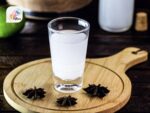
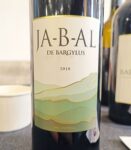
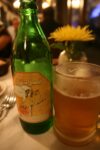
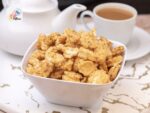
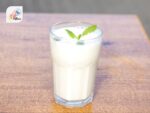
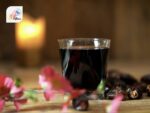
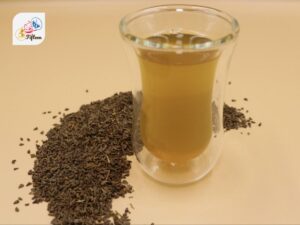
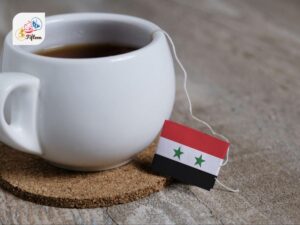
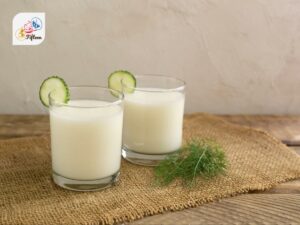
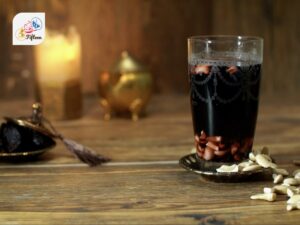
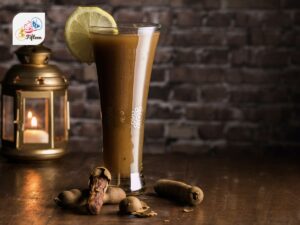
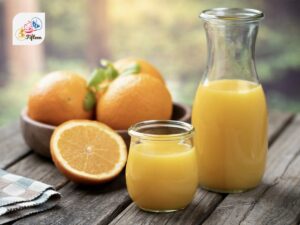
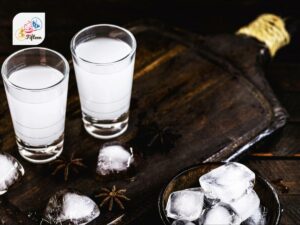
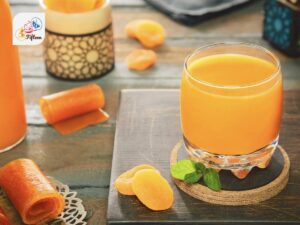
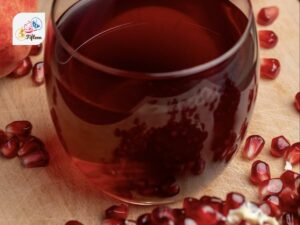
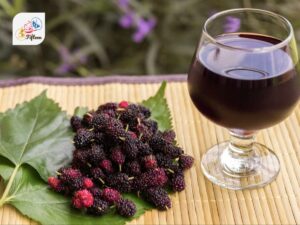
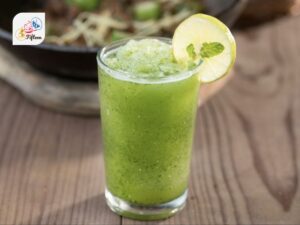
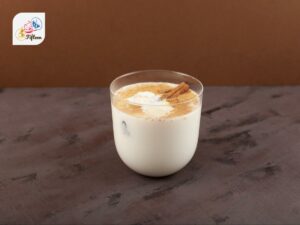
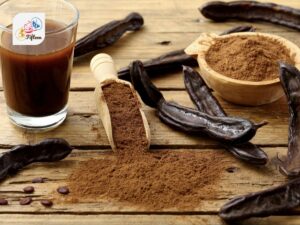
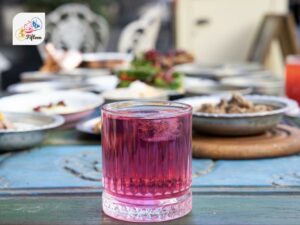
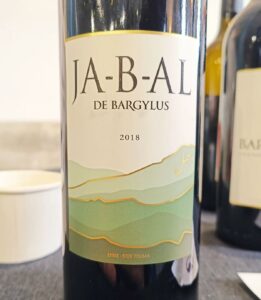
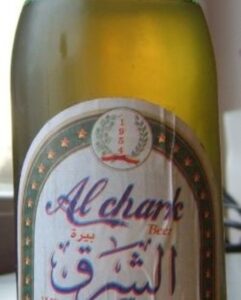
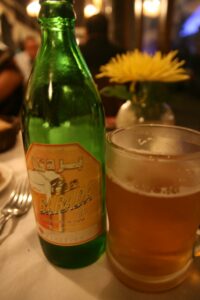
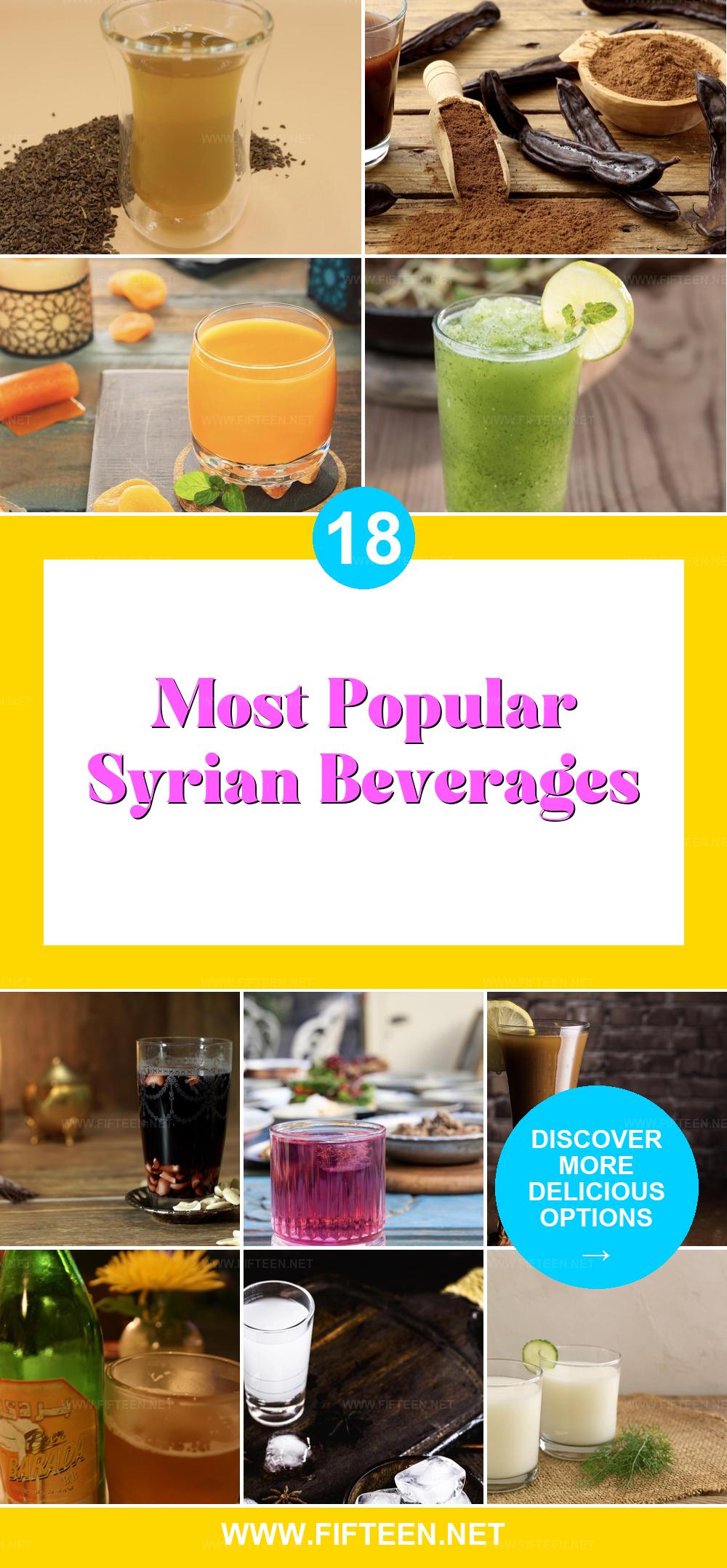
Jamie Scott
Editor in Chief, Senior Content Writer
Expertise
Home Cooking, Meal Planning, Recipe Development, Baking and Pastry, Food Editor, Cooking-video Maker, Western Food Evaluation Expert
Education
Le Cordon Bleu College of Culinary Arts
Local Community College, New York, NY
Jamie Scott is a skilled culinary expert and content creator specializing in Western cuisine. With over 15 years in the culinary field and formal training from Le Cordon Bleu, Paris, Jamie deeply understands how to blend nutrition with delicious flavors. His passion for cooking matches his commitment to making healthy eating accessible and enjoyable.
On Fifteen.net, Jamie brings a fresh perspective to classic dishes and beverages, offering readers insightful recipes, cooking tips, and a fresh view on meal planning that emphasizes taste, health, and simplicity.